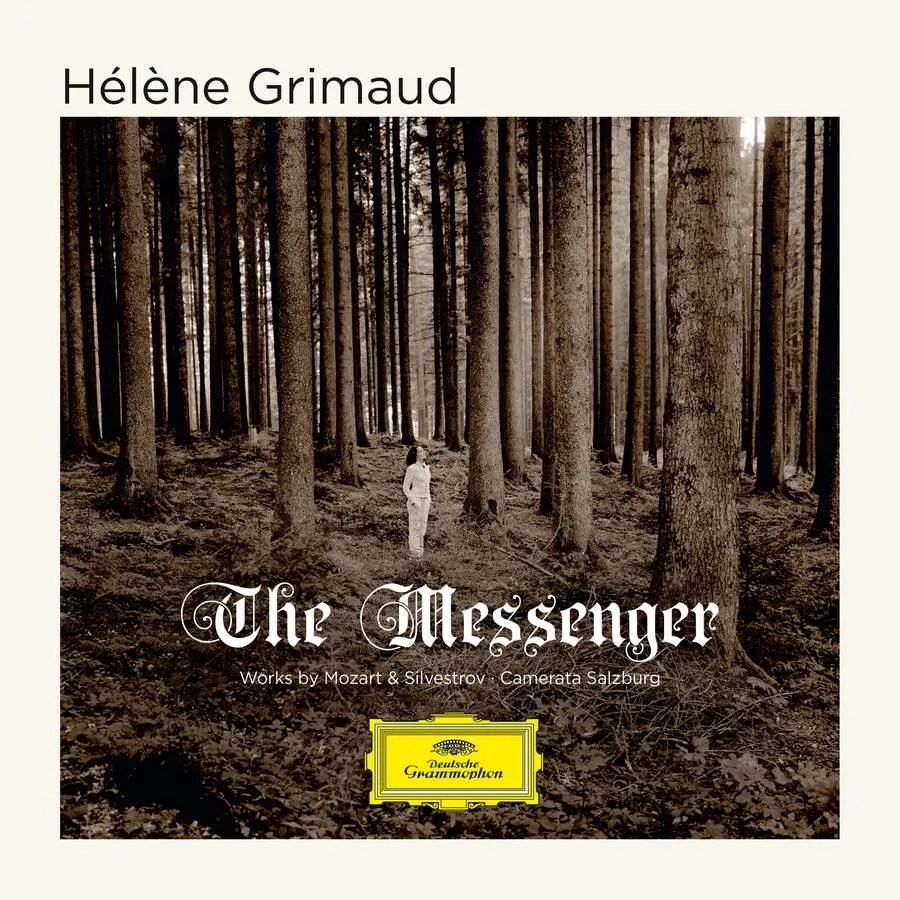
The Messenger Mozart: Piano Concerto No. 20 in D minor, K466*; Fantasia in D minor, K397; Fantasia in C minor, K475; Silvestrov: Two Dialogues with Postscript*; The Messenger – Piano Solo; with Strings* Hélène Grimaud (piano); *Camerata Salzburg DG 483 7853 77:18 mins
Hélène Grimaud’s programme brings together the post-modern musings of Ukrainian composer Valentin Silvestrov and Mozart’s D minor Piano Concerto – itself flanked by the two solo piano Fantasias, and featuring Beethoven’s cadenzas in the outer movements Silvestrov’s The Messenger is given in two versions, for strings and synthesiser and for solo piano. The floridly written booklet note has Grimaud offering some insightful thoughts on the music (‘For both Mozart and Beethoven, minor keys were suggestive of confrontations with fate or destiny, as opposed to Chopin for whom the minor was expressive of melancholy’). Here the D minor Fantasia, left incomplete by Mozart, features as a solo introduction to the concerto in the same key – an idea that doesn’t quite work, partly due to slight differences in sonority and recorded perspective, but you can see why Grimaud had thought it might.
- The best recordings of Mozart's Piano Concertos
- Find out more about Mozart and his work here
In any case her classy way with the D minor Concerto needs no point-making presentation: her playing combines incisiveness and finesse, with winsome poise also in the slow movement and deftly superb accompaniment by the Camerata Salzburg. A hardening of treble-register piano tone above mid-volume is unfortunately an issue in the two Fantasias, as is Grimaud’s close-to-mannered way, in two-handed chords, of bringing down the right hand a shade earlier than the left.
Alongside Mozart’s phenomenal inventive resources, Silvestrov’s presentation of static pools of sonority, themselves derived from quotations of Mozart, Brahms and other composers, can’t help sounding pallid and one-dimensional, beautifully played though they are here.
Read more of our reviews of the latest Mozart recordings here
Read more of our reviews of the latest Silvestrov recordings here
Malcolm Hayes
